Filter by
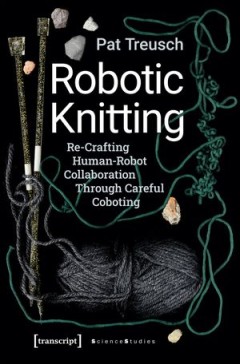
Constructed Wetlands for Pollution Control: Processes, Performance, Design an…
The book presents a comprehensive up-to-date survey of wetland design techniques and operational experience from treatment wetlands. This book is the first and only global synthesis of information related to constructed treatment wetlands. Types of constructed wetlands, major design parameters, role of vegetation, hydraulic patterns, loadings, treatment efficiency, construction, operation and m…
- Edition
- -
- ISBN/ISSN
- 9781900222051
- Collation
- -
- Series Title
- -
- Call Number
- -
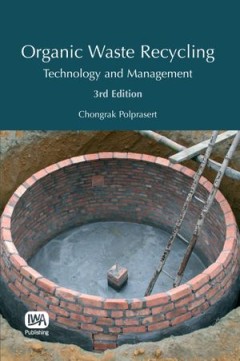
Computational Hydraulics
Computational Hydraulics introduces the concept of modeling and the contribution of numerical methods and numerical analysis to modeling. It provides a concise and comprehensive description of the basic hydraulic principles, and the problems addressed by these principles in the aquatic environment. Flow equations, numerical and analytical solutions are included. The necessary steps for building…
- Edition
- -
- ISBN/ISSN
- 9781780400440
- Collation
- -
- Series Title
- -
- Call Number
- -

Coastal Lagoons in Europe: Integrated Water Resource Strategies
Lagoons represent nearly 13% of the shoreline globally and around 5% in Europe. Coastal lagoons are shallow water bodies separated from the ocean by a barrier (e.g., narrow spit), connected at least intermittently to the ocean by one or more restricted inlets, and usually geographically oriented parallel to the shoreline. Coastal lagoons are flexible and usually able to cope with environmental …
- Edition
- -
- ISBN/ISSN
- 9781780406282
- Collation
- -
- Series Title
- -
- Call Number
- -

Clean Water Using Solar and Wind: Opportunities to reach outside the power grid
The aim of Clean Water Using Solar and Wind is to make water professionals aware of the possibilities that solar photo-voltaic (PV) and wind offer to bring, not only clean energy but also clean water to remote and rural areas in Africa and developing Asia as well as in many peri-urban areas in the developing world. These areas are located outside the conventional electric grids and a grid conne…
- Edition
- -
- ISBN/ISSN
- 9781780409436
- Collation
- -
- Series Title
- -
- Call Number
- -

Chemistry of Ozone in Water and Wastewater Treatment
Even though ozone has been applied for a long time for disinfection and oxidation in water treatment, there is lack of critical information related to transformation of organic compounds. This has become more important in recent years, because there is considerable concern about the formation of potentially harmful degradation products as well as oxidation products from the reaction with the ma…
- Edition
- -
- ISBN/ISSN
- 9781843393139
- Collation
- -
- Series Title
- -
- Call Number
- -

Adaptive Collaborative Management in Forest Landscapes
This book examines the value of Adaptive Collaborative Management for facilitating learning and collaboration with local communities and beyond, utilising detailed studies of forest landscapes and communities. Many forest management proposals are based on top-down strategies, such as the Million Tree Initiatives, Forest Landscape Restoration (FLR) and REDD+, often neglecting local communities. …
- Edition
- -
- ISBN/ISSN
- 9781000483017, 1000483010
- Collation
- -
- Series Title
- -
- Call Number
- -
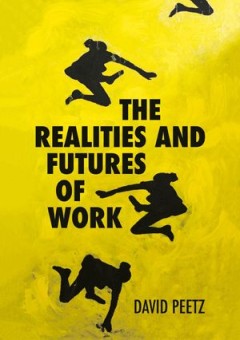
Border Flows: A Century of the Canadian-American Water Relationship
Declining access to fresh water is one of the twenty-first century’s most pressing environmental and human rights challenges, yet the struggle for water is not a new cause. The 8,800-kilometer border dividing Canada and the United States contains more than 20 percent of the world’s total freshwater resources, and Border Flows traces the century-long effort by Canada and the United States to…
- Edition
- -
- ISBN/ISSN
- 9781552388969
- Collation
- -
- Series Title
- -
- Call Number
- -
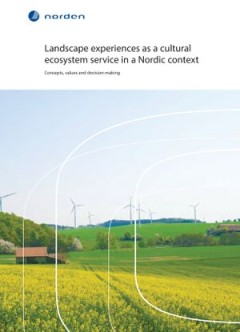
Landscape Experiences As a Cultural Ecosystem Service in a Nordic Context
Cultural ecosystem services in the form of experiences derived from landscapes are potentially important, but often overlooked. Given the large and unprecedented landscape changes many of the Nordic countries are undergoing, there is a need to find ways of including people’s preferences and the value of landscape impacts in policy assessments and decision-making processes. The project aim has…
- Edition
- -
- ISBN/ISSN
- 9789289342391
- Collation
- -
- Series Title
- -
- Call Number
- -
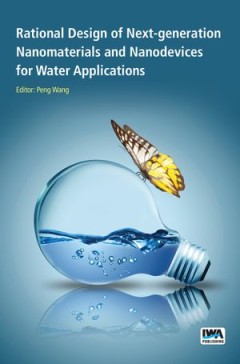
Biological Wastewater Treatment in Warm Climate Regions Volume II
Biological Wastewater Treatment in Warm Climate Regions gives a state-of-the-art presentation of the science and technology of biological wastewater treatment, particularly domestic sewage. The book covers the main treatment processes used worldwide with wastewater treatment in warm climate regions given a particular emphasis where simple, affordable and sustainable solutions are required. This…
- Edition
- -
- ISBN/ISSN
- 9781843391074
- Collation
- -
- Series Title
- -
- Call Number
- -
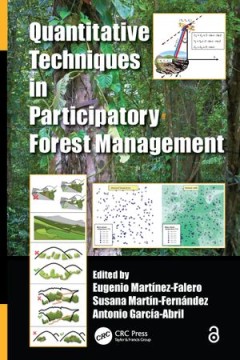
Biological Wastewater Treatment in Warm Climate Regions
Biological Wastewater Treatment in Warm Climate Regions gives a state-of-the-art presentation of the science and technology of biological wastewater treatment, particularly domestic sewage. The book covers the main treatment processes used worldwide with wastewater treatment in warm climate regions given a particular emphasis where simple, affordable and sustainable solutions are required. This…
- Edition
- -
- ISBN/ISSN
- 9781780402734
- Collation
- -
- Series Title
- -
- Call Number
- -
 Computer Science, Information & General Works
Computer Science, Information & General Works  Philosophy & Psychology
Philosophy & Psychology  Religion
Religion  Social Sciences
Social Sciences  Language
Language  Pure Science
Pure Science  Applied Sciences
Applied Sciences  Art & Recreation
Art & Recreation  Literature
Literature  History & Geography
History & Geography